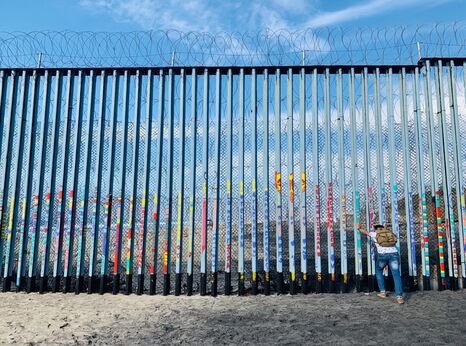Free asylum seeker from detention

Pastor Steven Tendo arrived in the USA on 20 December 2018 and requested asylum after fleeing persecution in Uganda. He had led a human rights campaign assisting political prisoners and supporting voting rights in response to government repression and corruption. In 2012, security forces detained and severely tortured him, amputating two of his fingers. He was detained more than a dozen times and subjected to severe abuse before being forced to flee for his life. Several of his family members were killed by government forces shortly before he fled.
Now detained for over two years by Immigration and Customs Enforcement (ICE) in the Port Isabel Service Processing Center, Pastor Steven’s diabetes had spiraled out of control due to inadequate medical care in detention: he had gone blind in one eye, was losing vision in the other, and suffered numbness and tingling in his extremities. He had recurring boils all over his body. Despite repeated requests, Pastor Steven was denied disability accommodations. Despite his deteriorating health and compromised autoimmune system, ICE has denied requests for his release without any specific reasons given. Amnesty International has documented how ICE detention facilities have failed to adopt adequate protection measures, such as providing soap and sanitizer to those in detention, adequate and responsive health care to those exhibiting symptoms of COVID-19, and facilitating physical distancing in line with Centres for Disease Control and Prevention (CDC) guidelines and global standards.
In early September, Pastor Steven was facing imminent deportation to Uganda. The USA government is under the obligation not to return individuals to a situation in which they would be at risk of torture or other serious human rights abuses. An official from Uganda had submitted a declaration confirming that Pastor Steven was tortured by Ugandan government forces and will likely be killed by security agencies if returned to Uganda.
On 7 September 2020, following global campaign efforts and congressional intervention, USA immigration authorities agreed to delay Pastor Steven Tendo’s deportation until his federal appeal on his asylum claim is heard before the USA Fifth Circuit Court of Appeals. As of 18 September 2020, he received surgery that has restored vision in one of his eyes. However, his immune system remains compromised and he faces life-threatening complications should he be exposed to COVID-19. As of 5 January 2021, at least 236 people detained with him at the Port Isabel detention facility contracted the virus.
Detention of asylum-seekers should only be a measure of last resort, after other non-custodial alternatives have proven or been deemed insufficient in relation to the individual. According to the UN Special Rapporteur on torture and other cruel, inhuman or degrading treatment or punishment, the detention of asylum-seekers solely on the base of their immigration status can “very quickly, if not immediately” constitute ill-treatment against individuals in situations of increased vulnerability, including people with medical conditions.
Under the ICCPR, the Convention Against Torture, and customary international law, the USA is under an obligation not to return individuals to a situation in which they would be at risk of torture or other serious human rights abuses: the principle of non-refoulement. Under USA law, all individuals apprehended at the border “shall be detained” pending deportation proceedings. USA law provides that these individuals may be released on parole on a case-by-case basis for “urgent humanitarian reasons” or “significant public benefit” where the individual presents neither a security risk nor a risk of absconding. ICE policies provide Field Office Directors with discretion to parole individuals who have established a credible fear on a case-by-case basis for these same reasons, including for persons whose continued detention is not in the public interest and individuals with medical emergencies.